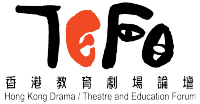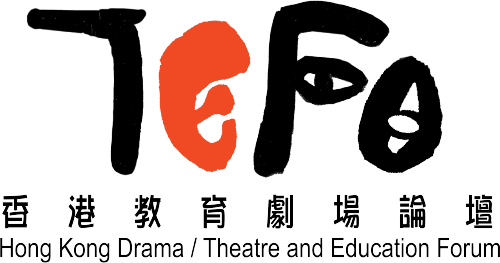Your search query "2024 Realistic JN0-351 Test Prep - Enterprise Routing and Switching, Specialist (JNCIS-ENT) Exam Dumps Collection Pass Guaranteed Quiz 🛑 Search for ( JN0-351 ) and download exam materials for free through ➽ www.pdfvce.com 🢪 🧀Valid JN0-351 Test Pass4sure" has 619 page results
Passion, Partnership, Power and Persistence: The Rise and Fall of a Transnational Drama Programme | DaTEAsia Vol. 6
...Chan, P., Dunn, J. (2016). Passion, partnership, power and persistence: the rise and fall of a transnational drama programme. The Journal of Drama and Theatre Education in Asia, 6, 9-26....
A Refective Case Study On Efective English Speaking Through Process Drama|DaTEAsia Vol. 7
...alternative option for ESL classrooms. Three relevant themes – classroom relationships, emotional arousal and language production, and English speaking – were coded and categorised, and then analysed from the perspectives...
Cultural and Theatrical Signs: the Ethical and Methodological Issues in Tang’s Heritage Theatre|DaTEAsia Vol. 1
...was a new venture by the Hong Kong Drama/Theatre and Education Forum. They introduced to primary and secondary schools the story of Hong Kong’s famous local clan, the Tang’s, through...
觀眾與補白
那天午飯跟同事說起香港應用戲劇/戲劇教育工作十分活躍,可以著手做的研究課題實在不少。例如就提問技巧做實踐者反思研究、或者探索戲劇形式和風格與精神健康服務的實踐應用等。(註1) 對我而言,觀眾或參與者研究是很重要的切入點和課題。因為各式的應用戲劇/劇場不論是過程戲劇、編作劇場、論壇劇場還是教育劇場,項目由策劃、設計到執行都必定會考慮觀眾怎樣參與戲劇活動中。應用劇場/戲劇作品本身並不是早已完成、遠遠地被欣賞的成品。相反,作品往往特意預留空白的地方,用以邀請觀眾去探索或體驗。那麼,觀眾或參與者是如何參與其中,又運用些甚麼去填補作品留白之處(fill in the blanks),就成為十分有趣的研究課題。 觀眾研究一直是大眾傳播學範疇的工作,關注由傳播媒體—如文字、電影、印刷媒體、電視和廣播等—接收訊息的人如何解讀訊息,又稱為受眾或閱聽人研究。(註2) 觀眾或受眾研究歷史中曾經把受眾視為被操縱、被欺騙的人群;而英國文化研究學者霍爾(Stuart Hall)的接收理論(reception theory)則持相反的觀點。霍爾研究電視媒體,指出傳播的過程是由「編碼」(encoding)與「解碼」(decoding)兩部分所組成。媒介傳播者在傳播過程中,借助一定的符號來傳播意義,按照一定的規則進行編碼。受眾有不同的政治、經濟背景、文化群體,他們的解碼活動必然受到其社會地位和文化背景的影響,對接收而來的資訊會簡單的同意,也會與之協商或者對訊息作出抵制等不同的解碼立場。(註3) 霍爾從文化理論開啟電視受眾是主動而非被動的研究新範式。 社會學家Richard Butsch 和媒體學者Sonia Livingstone合編了《Meanings of audiences: Comparative discourses》一書,從論述比較角度,分析由古希臘、早期現代德國以至當代埃及、印度、中國和台灣等不同地方的不同電視、電影等媒體中呈現的觀眾觀念和論述。他倆認為觀眾不僅僅表徵著一個的社會休閒和娛樂的情況,更是與公共、公民、政治和經濟等方面也密切相關,因為「觀眾是甚麼」的說法往往嵌入到特定的社會歷史背景下誰有話語權力、代表權力和規管權力的說法之中。故此,研究觀眾的論述特質有助揭示觀眾與社會繁榮、教育和文化賦權、道德和家庭生活等是如何聯繫在一起。(註4) 劇場方面,研究戲劇傳統的學者亦不乏從文化角度看觀眾。他們指出劇場觀眾的禮儀或行為實際上是社會文化產品,在特定的社會價值觀和戲劇傳統背景下製成。(註5) 意思是,我們學會從特定社會、文化和政治氛圍中學習成為觀眾。Susan Bennett從文化角度研究劇場觀眾如何接收戲劇演出。她認為當代的戲劇藝術和表演形式多元,可以發生在街頭巷尾、博物館等而不單是劇院、音樂廳等表演場館,更不一定商業主導。戲劇演出不是單一的藝術活動,是跟整個在地文化實踐互為相關,觀眾看演出就成為文化現象的一部份。所以,Bennett倡議看待劇場為「事件」並從兩個層面分析觀眾,一是他們看演出的體驗和詮釋,即接收面向,二是劇場的製作面向,包括選材、觀眾觀念等整個構成及其背後的假設。(註6) 上述領域的文獻對應用劇場/戲劇教育的觀眾或參與者研究工作具有啟發意義。英國劇場學者Nicola Shaughnessy解釋應用劇場「應用」一詞的英文「apply」源自拉丁文applicāre,字面上有「把東西連繫一起」的意思,也比喻「投身於」和「加以注意」。Shaughnessy指應用劇場工作者關心他們工作所及的社區或社群,有意識地運用表演的過程來帶動變革,創造新的東西。(註7) 換言之,應用劇場/戲劇一開始就標示了一種有別於傳統的戲劇人與觀眾的關係。這種關係除了對戲劇作品和創作歷程帶來重新的定義之外,對於「觀眾是甚麼」也引發反思和變革。應用劇場/戲劇視觀眾或參與者為戲劇/劇場作品的共同創作者,在作品留白之處補白。補白既是創作,又是探索和詮釋—觀眾或參與者透過與作品的互動來認識自己及處身的世界。 近十年,歐美和香港、新加坡等華語地區於青少年劇場、社區戲劇、教育劇場已陸續開展觀眾或參與者研究工作。這些研究工作從觀眾或參與者的角度看他們如何接收、和解讀和詮釋劇場/戲劇和自己的體驗,對應用劇場/戲劇的實踐有不同啟發;包括更有效的認識觀眾或參與者及其處身的學校、社會、文化脈絡,為戲劇/劇場教育查尋更適切介入點和形式;(註8) 又有了解青少年觀眾到劇場看演出或把他們排拒劇院之外的東西,藉以探討劇場與青少年文化權利、權益、舞臺表演業發展的關係;(註9) 亦有從觀眾的審美回應來分析兒童觀、觀眾觀,為實踐者提供反思實踐的方向;(註10) 也有藉由探討孩子們對劇場和劇院的觀感、經驗與想像去尋找或建立研究方法與理論分析框架。(註11) 由此來看,研究觀眾或參與者的體驗本來就是應用劇場/戲劇一個重要、須要做的工作。 註...
Entangled Identities: Drama as a Method of Inquiry|DaTEAsia Vol. 4
...on Clandinin and Connelly’s three dimensional inquiry space as a framework and weaving the children’s small stories throughout as they travelled with me; in and out of a fictive world....
Planting Trees of Drama with Global Vision in Local Knowledge: IDEA 2007 Dialogues
...on the conversion between the global and the local is important for us, as Hong Kong is always, for a century and a half, shifting and drifting between, or below,...

Did you find what you were looking for?
Hmm…
The query you just searched for has no results…
Sometimes we have to try different methods in our process in order to find what we’re looking for, try another query!
Let us know what you’re looking for!
If you can’t find what you’re looking for on our website, we’d love to know what journey you went through to get here, and we hope we can update our website to better suit your needs.






